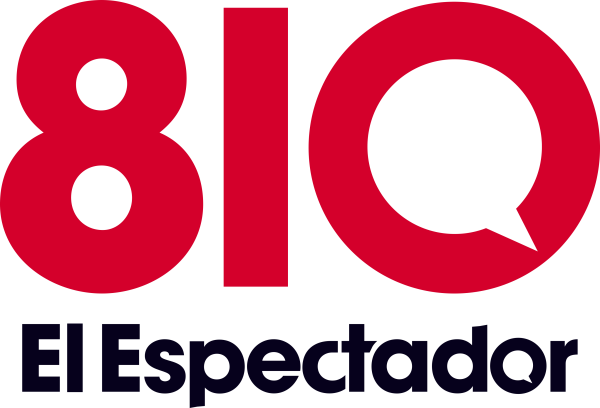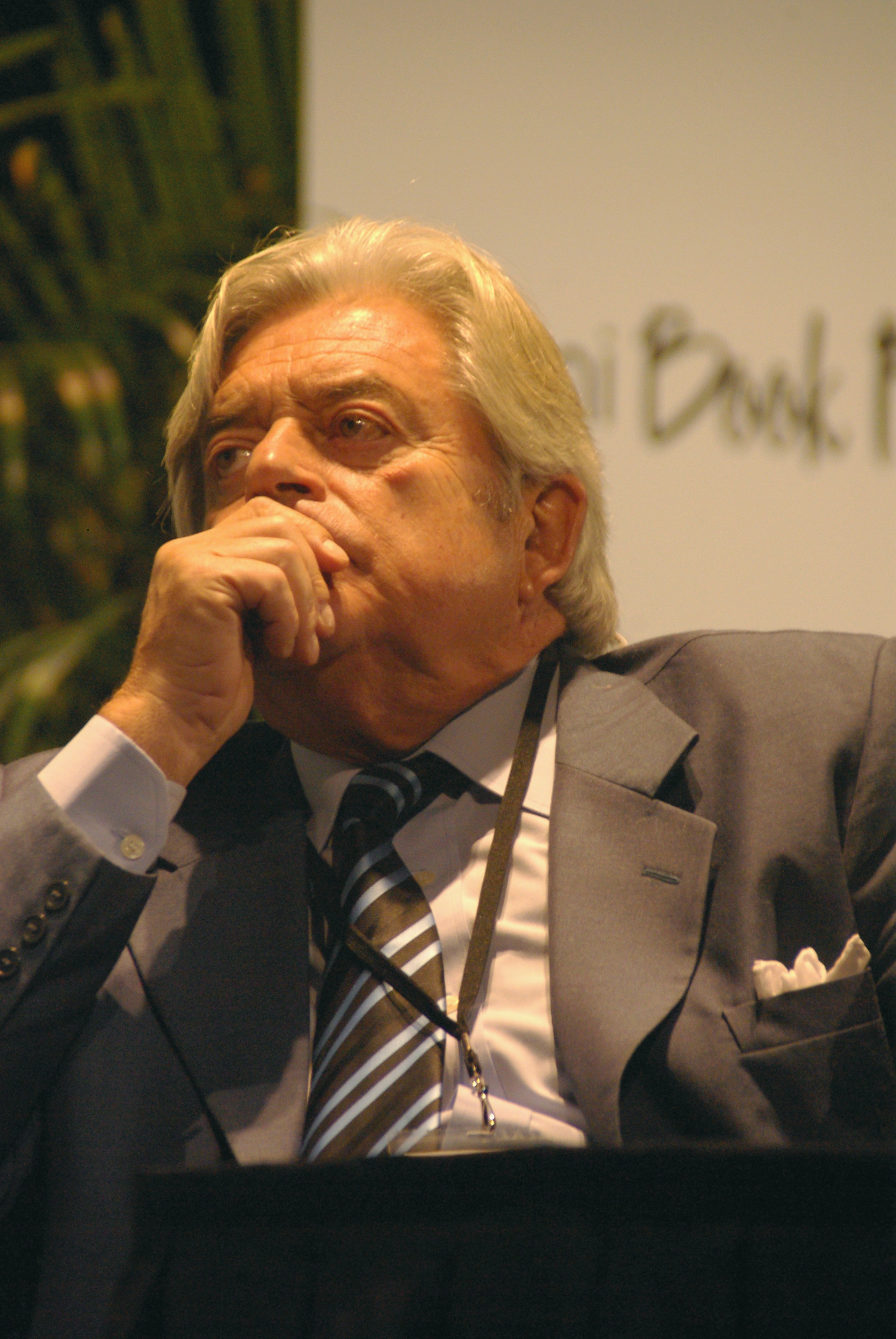|
Beatriz Argimón
Beatriz Argimón Cedeira (born 14 August 1961) is a Uruguayan politician and notary from the National Party (PN) serving as the 18th Vice President of Uruguay since March 1, 2020, being the first woman elected to that position. Graduated from the University of the Republic in 1989 with a degree in notarization, she also studied human rights, family law, and juvenile law. She served as a National Representative for Montevideo Department between 2000 and 2010, and has been a member of the National Party Board since 2009. Since November 2020, she has been a member of the Executive Committee of the Inter-Parliamentary Union. She is an activist for women's rights, and was one of the founders of the "Network of Political Women" and of the "Bicameral Female Caucus" of the General Assembly. Biography Beatriz Argimón Cedeira was born in Montevideo, on August 14, 1961 to Juan Carlos Argimón, a civil servant, and María Esther Cedeira, a housewife. The oldest child in a Catholic ... [...More Info...] [...Related Items...] OR: [Wikipedia] [Google] [Baidu] |
Vice President Of Uruguay
The vice president of Uruguay is the person with the second highest position in the executive branch of the Uruguayan government, after the President of Uruguay. The Vice President replaces the elected President in case of his death or absence. The vice president is also an officer in the legislative branch, as president of the Chamber of Senators and of the General Assembly. The president and vice president run on a single ticket submitted by their party. In case no candidate obtains an absolute majority of votes (50%+1), a runoff is held between the top two candidates. In this case, the candidate who obtains a plurality in the runoff wins the election. The current Vice President is Beatriz Argimón, who took office on March 1, 2020. History The position of Vice-President of the Republic was established in the Constitution of 1934. Previously the President of the Senate assumed the Presidency in case of absence of the President. The Constitution of 1952 established a 9-membe ... [...More Info...] [...Related Items...] OR: [Wikipedia] [Google] [Baidu] |
Civic-military Dictatorship Of Uruguay
The civic-military dictatorship of Uruguay (1973–85), also known as the Uruguayan Dictatorship, was an authoritarian military dictatorship that ruled Uruguay for 12 years, from June 27, 1973 (after the U.S. backed 1973 coup d'état) until March 1, 1985. The dictatorship has been the subject of much controversy due to its violations of human rights, use of torture, and the unexplained disappearances of many Uruguayans. The term "civic-military" refers to the military regime's relatively gradual usurpation of power from civilian presidents who continued to serve as head of state, which distinguished it from dictatorships in other South American countries in which senior military officers immediately seized power and directly served as head of state. The dictatorship was the culmination of an escalation of violence and authoritarianism in a traditionally peaceful and democratic country, and existed within the context of other military dictatorships in the region. It resulted i ... [...More Info...] [...Related Items...] OR: [Wikipedia] [Google] [Baidu] |
2014 Uruguayan Presidential Primaries
Presidential primary elections were held in Uruguay on 1 June 2014 in order to nominate the presidential candidate for every political party.Reglamentación de las elecciones internas de los partidos políticos Overview According to the opinion polls,the political landscape remained stable, due to the fact that most serious candidates had already run on the previous election. In the ruling coalition Broad Front, former president [...More Info...] [...Related Items...] OR: [Wikipedia] [Google] [Baidu] |
Jorge Larrañaga
Jorge Washington Larrañaga Fraga (8 August 1956 – 22 May 2021) was an Uruguayan politician of the National Party (PN) who was Minister of the Interior from 1 March 2020 until his death. He also previously served as Intendant of Paysandú from 1990 to 1999, as well as a Senator between 2000 and 2020. Background Larrañaga grew up and attended school in Paysandú. He studied law at the Universidad de la República and practiced until 1990, specializing in civil and labour law. He took a series of administrative posts in the National Party, culminating in his presidency of the Party's departmental commission in Paysandú (1985–1989). Prominence in the National Party He was elected Intendant in 1989 and won a second term in 1994. He unsuccessfully contested internal party elections for vice presidential candidate in 1999. Technically it was Juan Andrés Ramírez who was running for presidential candidate that year. Had Ramírez won, it was assumed the National Conven ... [...More Info...] [...Related Items...] OR: [Wikipedia] [Google] [Baidu] |
2009 Uruguayan Presidential Primaries
Presidential primary elections were held in Uruguay on 28 June 2009 in order to nominate the presidential candidate for every political party.Reglamentación de las elecciones internas de los partidos políticos Overview Three parties had several contenders: * Broad Front ** ( Espacio 609, Communist Party of Uruguay (Partido Comunista del Uruguay),[...More Info...] [...Related Items...] OR: [Wikipedia] [Google] [Baidu] |
CX 14 El Espectador
El Espectador is a Uruguayan radio station, which broadcasts from the city of Montevideo. Its programming is informative and sports. It is considered the first radio station in Uruguay. In April 2013 an announcement was made regarding the sale of this media company. It was purchased by Magnolio group.Superlunes en las radios HISTORY In 1922, the Uruguayan subsidiary of decided to install a 10-watt power transmitter on the roof of the defunct daily Del Plata, which is how the ...[...More Info...] [...Related Items...] OR: [Wikipedia] [Google] [Baidu] |
Wilsonist Current
The Wilsonist Current ( es, Correntada Wilsonista) is a social-liberal faction of the National Party of Uruguay. Founded in 2002 by Francisco Gallinal, its name comes from the Wilsonism, an important tendency of the Party, led by Wilson Ferreira Aldunate. In 2008, jointly with the Herrerism, the Wilsonist Current created the National Unity, a group that supported the candidature of the former president Luis Alberto Lacalle for the primary elections of June 2009. Lacalle was beaten in the second round of the presidential election of November 2009 by José Mujica, candidate of the Broad Front (left coalition). History The Wilsonist Current was founded in 2002 by Francisco Gallinal, elected senator in 1999 as part of the Herrerism faction. In the primary elections of 2004, this tendency supported the candidature of Jorge Larrañaga, that obtained the nomination of the party. Several leaders of the Party are part of this faction, such as Enrique Antía (former mayor of the ... [...More Info...] [...Related Items...] OR: [Wikipedia] [Google] [Baidu] |
Julia Pou
María Julia Pou Brito del Pino (born ), popularly known as Julita, is a Uruguayan politician and member of the National Party (Uruguay) (PN). Pou served in the Senate of Uruguay 2000 to 2005, as well as First Lady of Uruguay from 1990 until 1995. She is the wife of former President Luis Alberto Lacalle and the mother of President Luis Alberto Lacalle Pou, who took office on 1 March 2020. Biography Pou was born in Montevideo to Alejandro Pou de Santiago, a physician, and María Eloísa Julia Brito del Pino Bordoni. She has two brothers, Gonzalo and Alejandro. She studied at the University of Paris, but did not graduate. Pou married Luis Alberto Lacalle in 1970. The couple have three children - Pilar, Luis Alberto, Juan José Manuel. During her tenure as first lady, Pou founded Acción Solidaria, a charitable non-governmental organization, which she headed until 1997. Together with Beatriz Argimón, Pou founded the Acción Comunitaria group () and was elected to the Senate of U ... [...More Info...] [...Related Items...] OR: [Wikipedia] [Google] [Baidu] |
Luis Alberto Lacalle
Luis Alberto Lacalle de Herrera, Order of St Michael and St George, GCMG (; ''Lacalle'' locally or ; born 13 July 1941), is a Uruguayan politician and lawyer who served as President of Uruguay from 1990 to 1995. Background His mother, María Hortensia de Herrera de Lacalle, was the daughter of the National Party (Uruguay), White political leader Luis Alberto de Herrera, after whom Lacalle was named. Luis Alberto Lacalle joined the National Party (Uruguay), National Party at the age of 17. In 1961 he started working as a journalist for ''Clarín (Argentine newspaper), Clarín'' and he graduated from the University of the Republic, Uruguay, University of the Republic's law school in 1964. In 1971, he was elected Deputy (legislator), deputy for Montevideo and kept his seat until the 1973 Civic-military dictatorship of Uruguay, coup, when President Juan María Bordaberry dissolved parliament. Assassination attempt In August 1978 Lacalle was sent three bottles of wine tainted with ... [...More Info...] [...Related Items...] OR: [Wikipedia] [Google] [Baidu] |
1989 Uruguayan General Election
General elections were held in Uruguay on November 26, 1989. They resulted in a clear win for the National Party (Uruguay), National Party, and victory for the Herrerismo-Renovación y Victoria presidential candidate, Luis Alberto Lacalle. This was only the third time in the 20th century that the National Party won a general election. The incumbent Colorado Party (Uruguay), Colorado Party was defeated. Results References External linksPolitics Data Bank at the Social Sciences School – Universidad de la República (Uruguay) 1989 elections in South America, Uruguay Elections in Uruguay 1989 in Uruguay, General November 1989 events in South America, Uruguay Luis Alberto Lacalle {{Uruguay-election-stub ... [...More Info...] [...Related Items...] OR: [Wikipedia] [Google] [Baidu] |
El País (Uruguay)
''El País'' is a Uruguayan newspaper, first published on September 14, 1918, and distributed nationwide. It previously belonged to the same media group as the television channel Teledoce. Its website is ranked 6th in Uruguay according to Alexa. Its circulation is verified by the Argentine institution IVC. History Established in Montevideo, ''El País'' was originally edited by Leonel Aguirre, Eduardo Rodríguez Larreta and Washington Beltrán Barbat. Begun as a political newspaper devoted to the National Party, it later developed into a general interest newspaper. For decades, ''El País'' has been among the leading written media in Uruguay, with a circulation of 65,000 on weekdays and 100,000 on Sundays. Its editorial focus is on the social, political and economic news of Uruguay, as well as the Mercosur regional trade alliance. Awards From 1991 to 2012 ''El País'' had been awarding the prize "El País King of European Soccer" for the best footballer in Europe. The fir ... [...More Info...] [...Related Items...] OR: [Wikipedia] [Google] [Baidu] |




